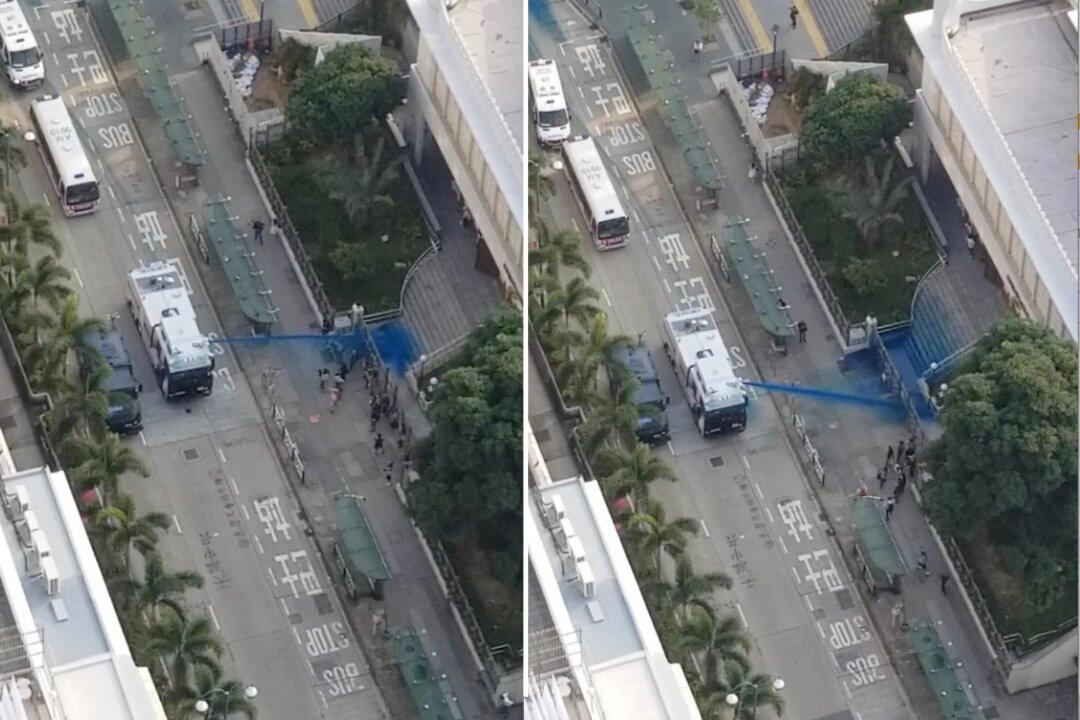News Analysis
Hong Kong police sprayed blue-dyed water from a water cannon truck onto a mosque and bystanders on the afternoon of Oct. 20. Hong Kong leaders, including Chief Executive Carrie Lam and the police authorities, later offered an apology and explained that the police did not have a “malicious intent,” as the reason they fired the water cannon was because there was an “unruly crowd” in the area.





